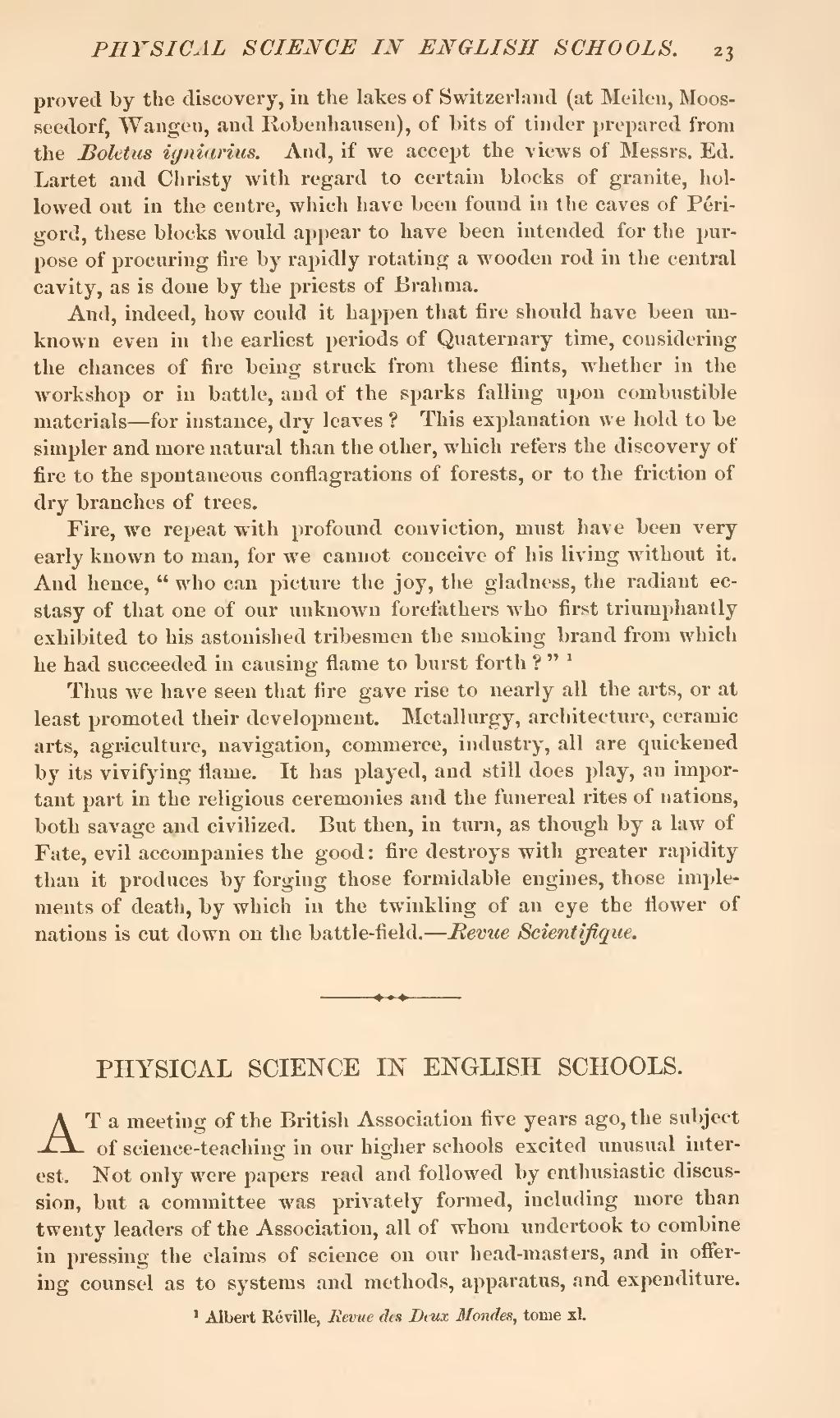proved by the discovery, in the lakes of Switzerland (at Meilen, Moosseedorf, Wangeu, and Robenhausen), of bits of tinder prepared from the Boletus igniarius. And, if we accept the views of Messrs. Ed. Lartet and Christy with regard to certain blocks of granite, hollowed out in the centre, which have been found in the caves of Perigord, these blocks would appear to have been intended for the purpose of procuring fire by rapidly rotating a wooden rod in the central cavity, as is done by the priests of Brahma.
And, indeed, how could it happen that fire should have been unknown even in the earliest periods of Quaternary time, considering the chances of fire being struck from these flints, whether in the workshop or in battle, and of the sparks falling upon combustible materials—for instance, dry leaves? This explanation we hold to be simpler and more natural than the other, which refers the discovery of fire to the spontaneous conflagrations of forests, or to the friction of dry branches of trees.
Fire, we repeat with profound conviction, must have been very early known to man, for we cannot conceive of his living without it. And hence, "who can picture the joy, the gladness, the radiant ecstasy of that one of our unknown forefathers who first triumphantly exhibited to his astonished tribesmen the smoking brand from which he had succeeded in causing flame to burst forth?"[1] Thus we have seen that fire gave rise to nearly all the arts, or at least promoted their development. Metallurgy, architecture, ceramic arts, agriculture, navigation, commerce, industry, all are quickened by its vivifying flame. It has played, and still does play, an important part in the religious ceremonies and the funereal rites of nations, both savage and civilized. But then, in turn, as though by a law of Fate, evil accompanies the good: fire destroys with greater rapidity than it produces by forging those formidable engines, those implements of death, by which in the twinkling of an eye the flower of nations is cut down on the battle-field.—Revue Scientifique.
| PHYSICAL SCIENCE IN ENGLISH SCHOOLS. |
AT a meeting of the British Association five years ago, the subject of science-teaching in our higher schools excited unusual interest. Not only were papers read and followed by enthusiastic discussion, but a committee was privately formed, including more than twenty leaders of the Association, all of whom undertook to combine in pressing the claims of science on our head-masters, and in offering counsel as to systems and methods, apparatus, and expenditure.
- ↑ Albert Reville, Revue des Deux Mondes, tome xl.

